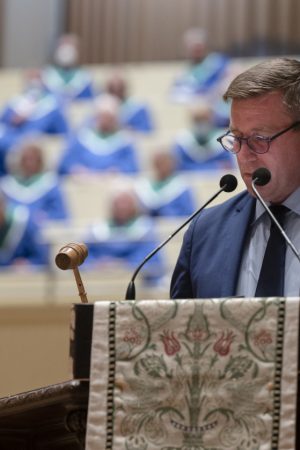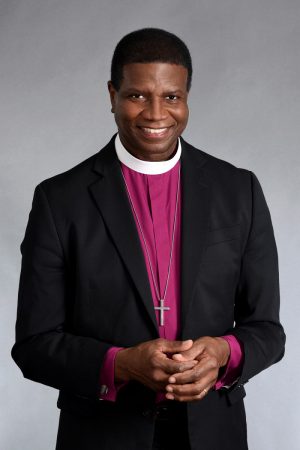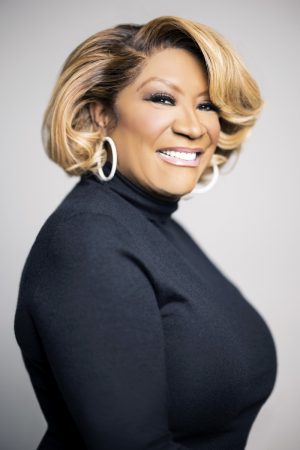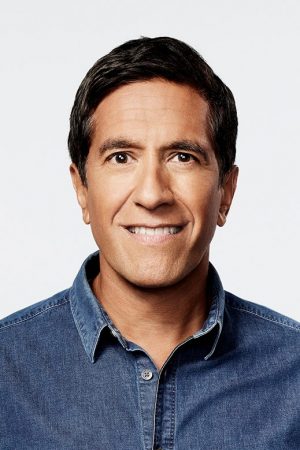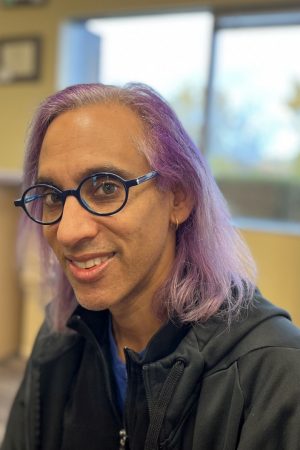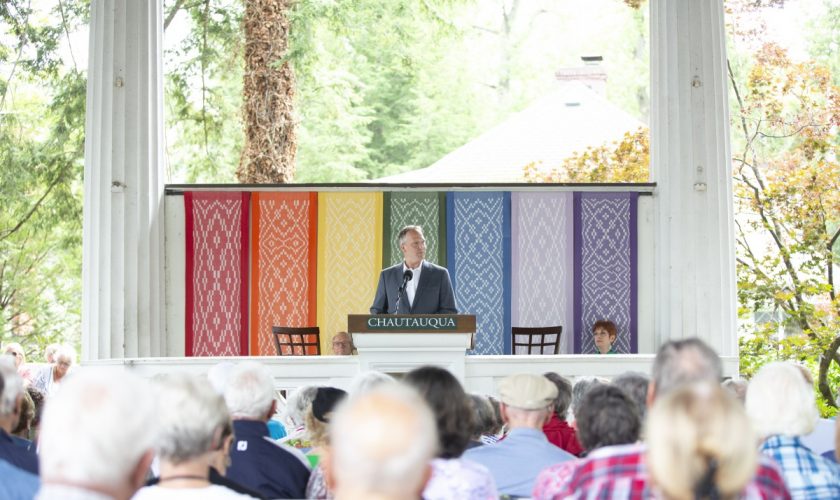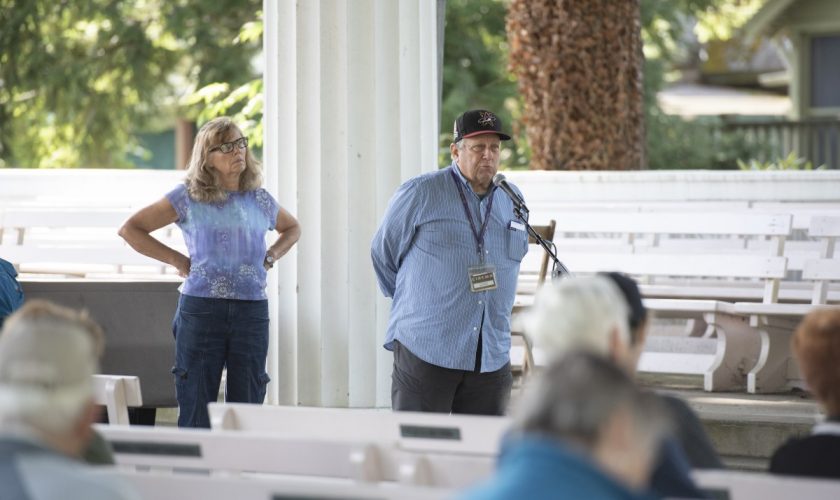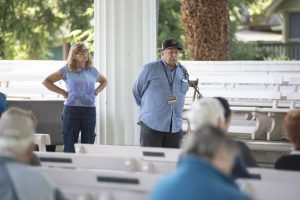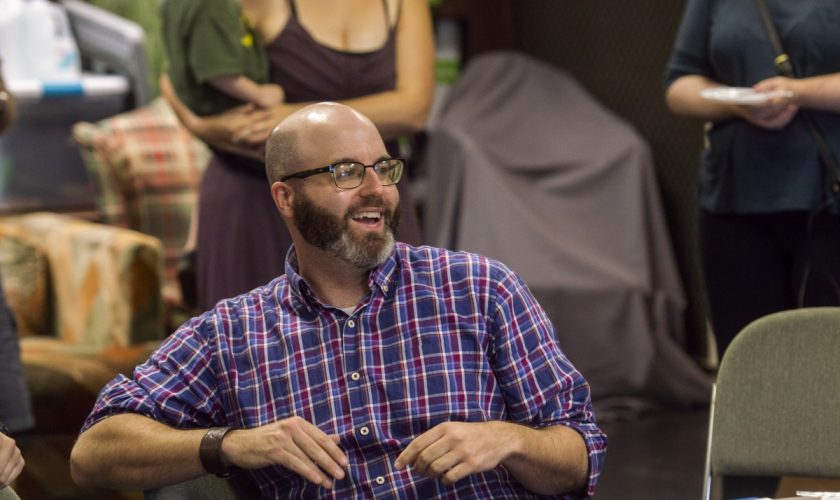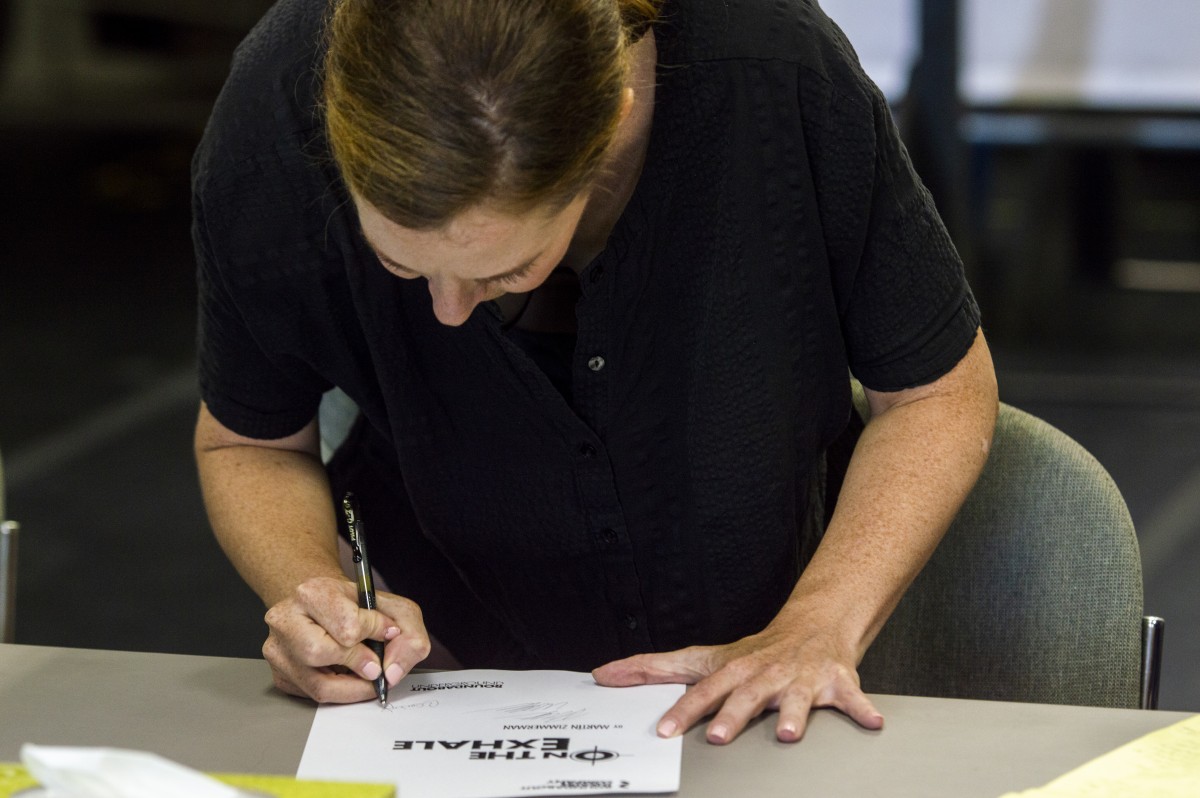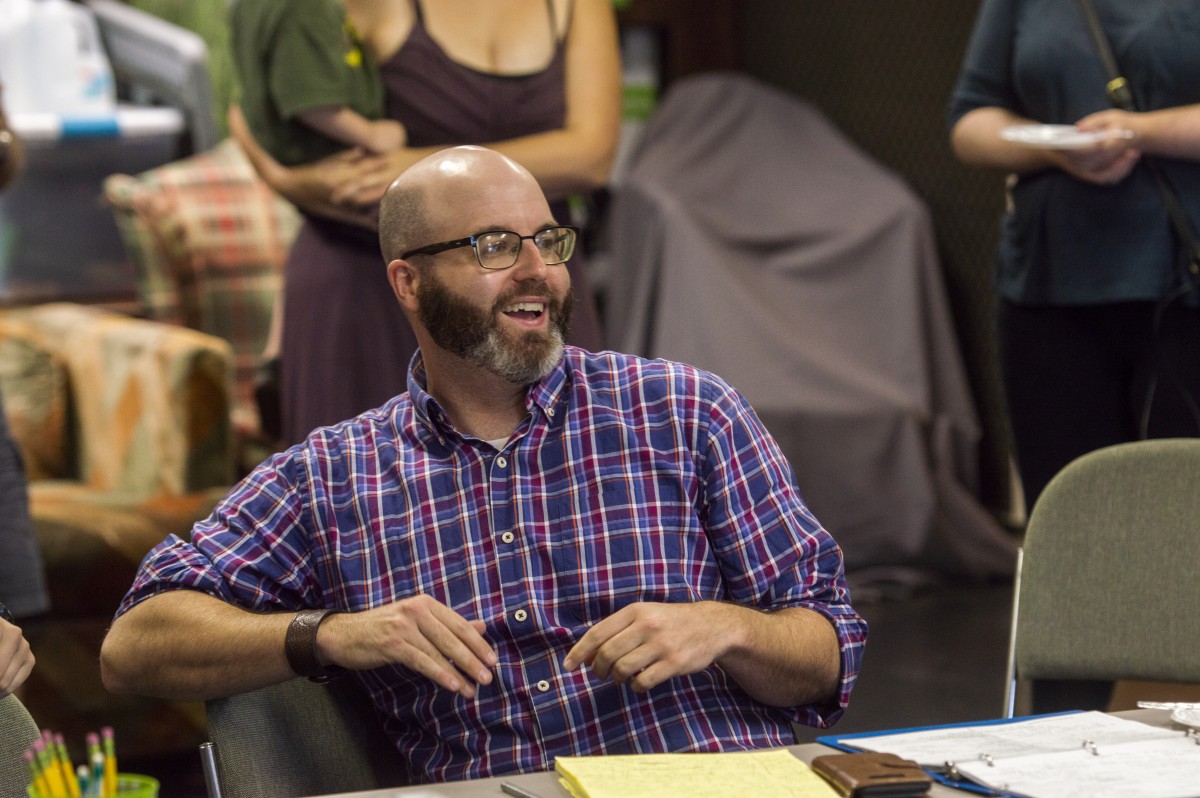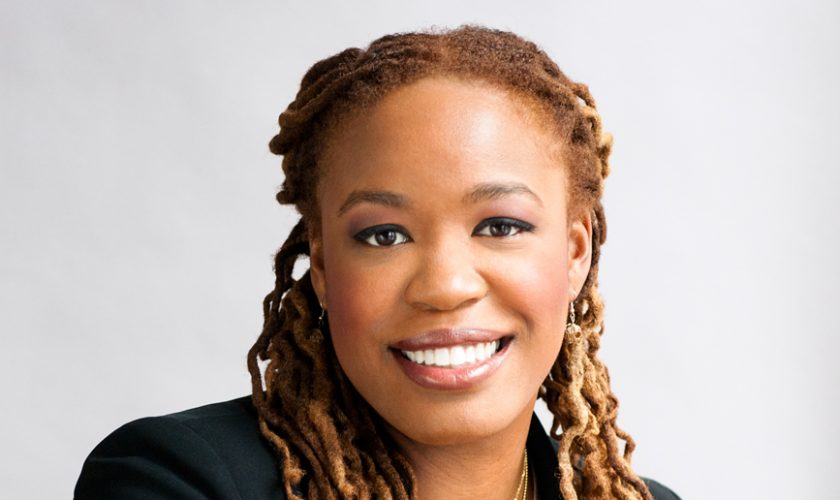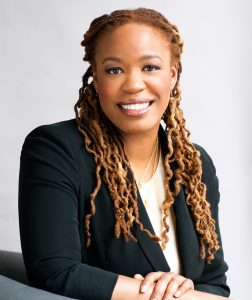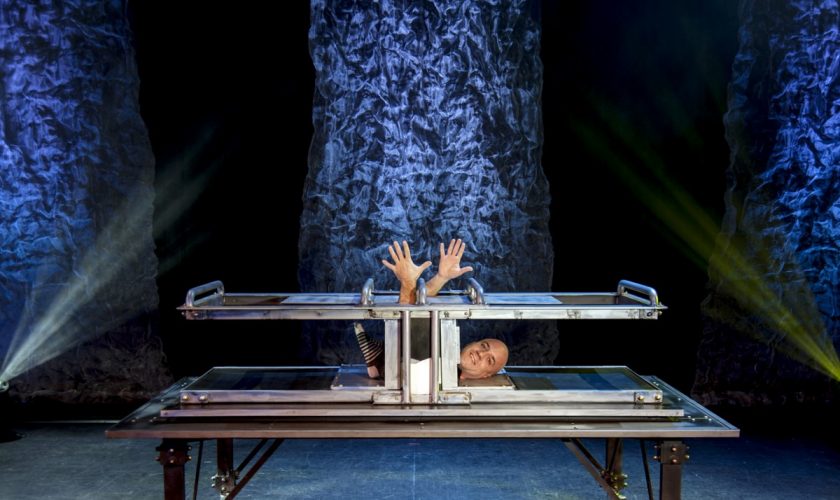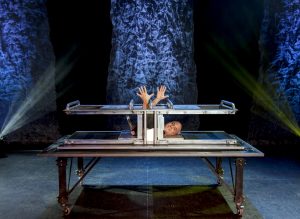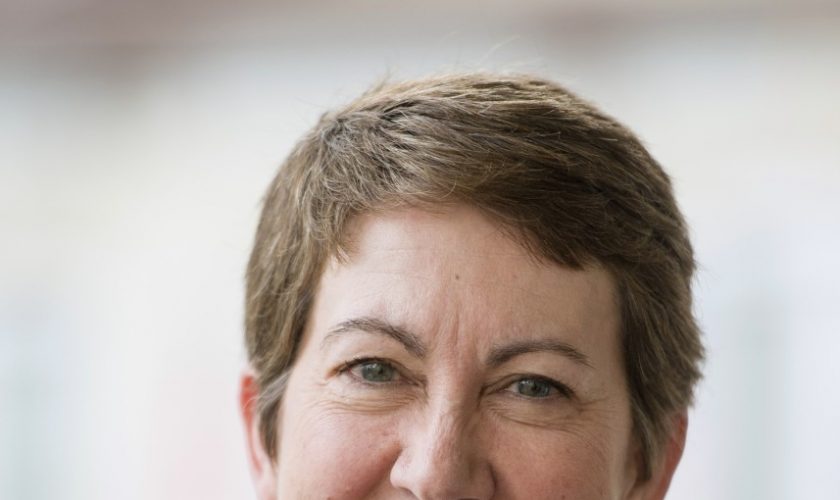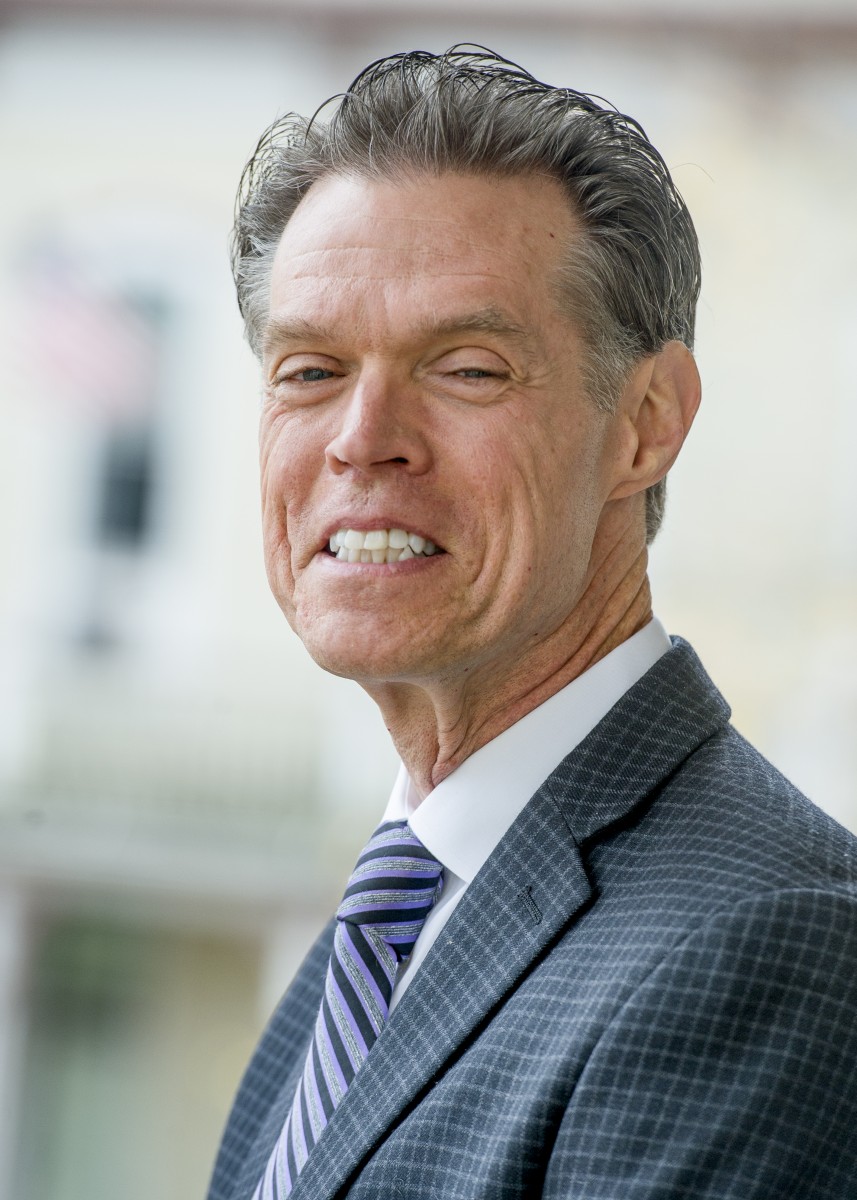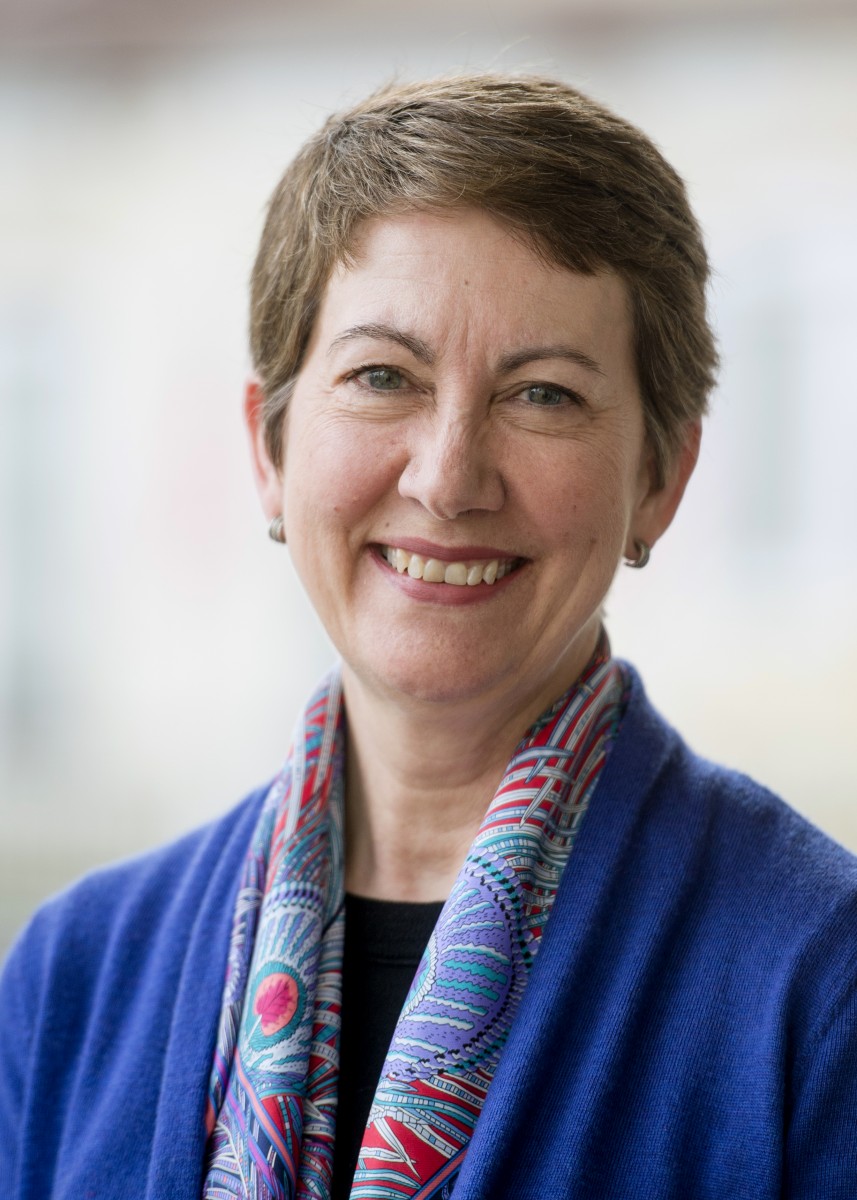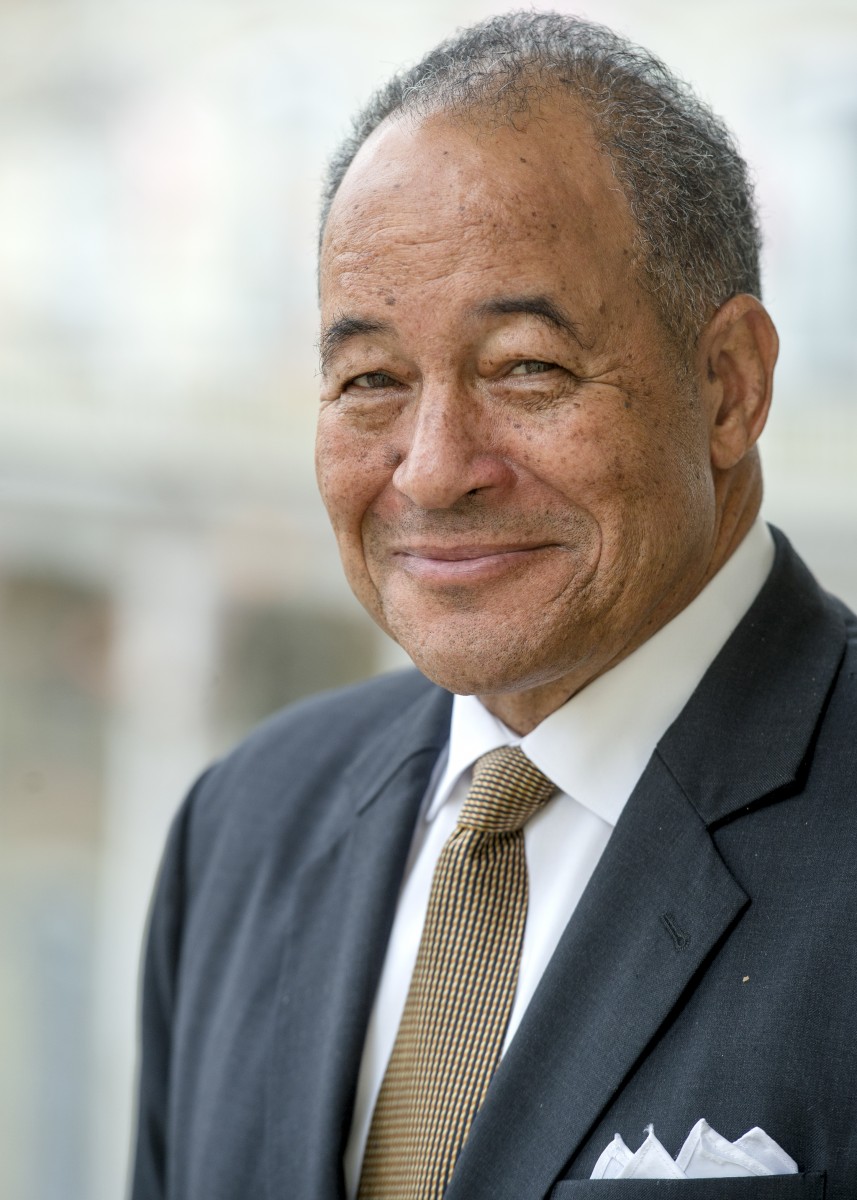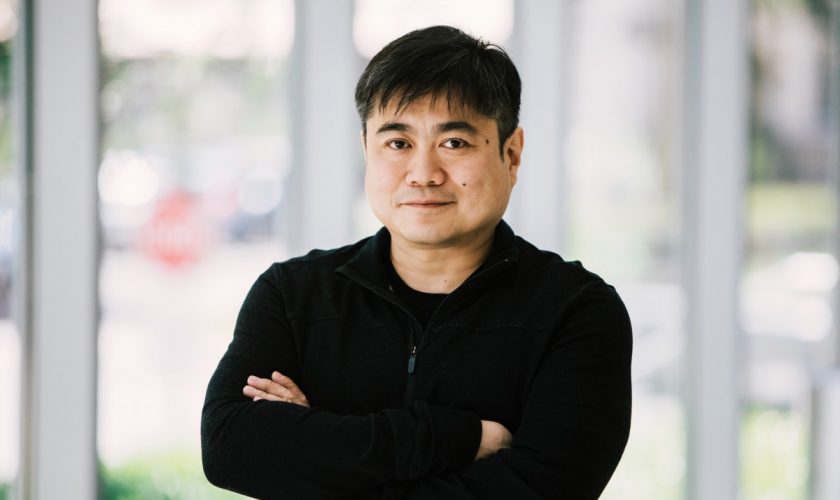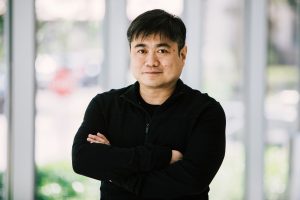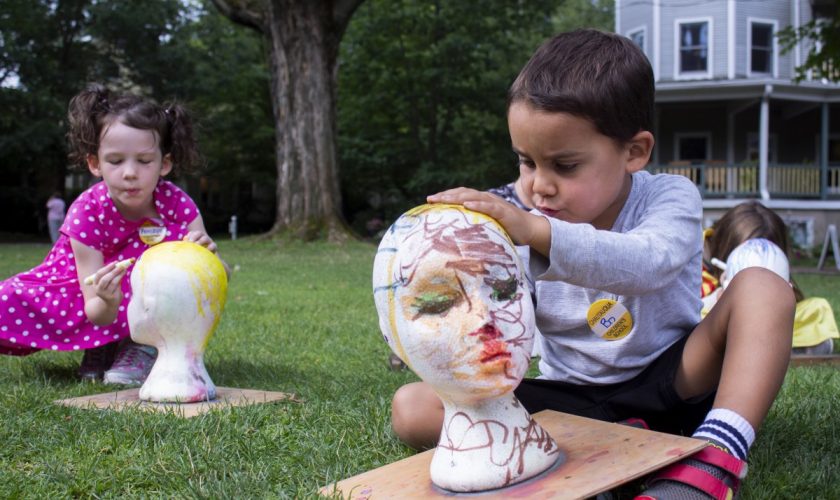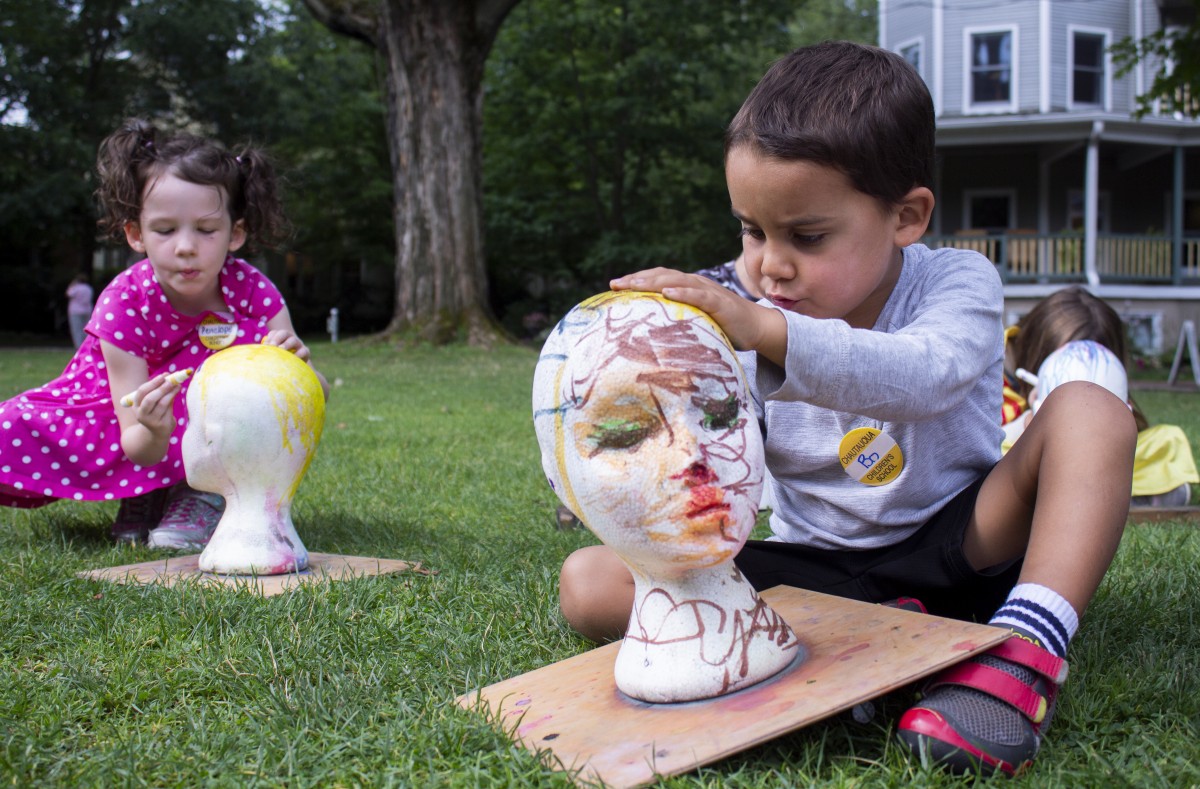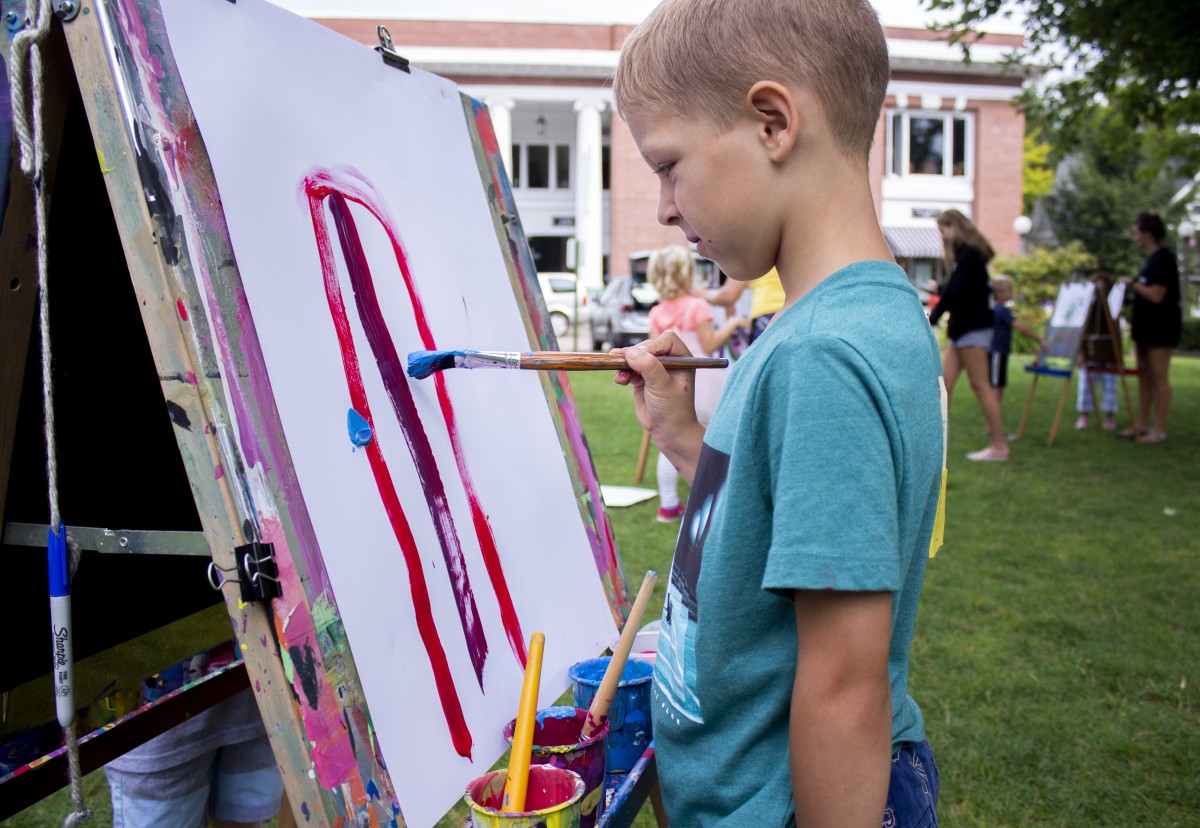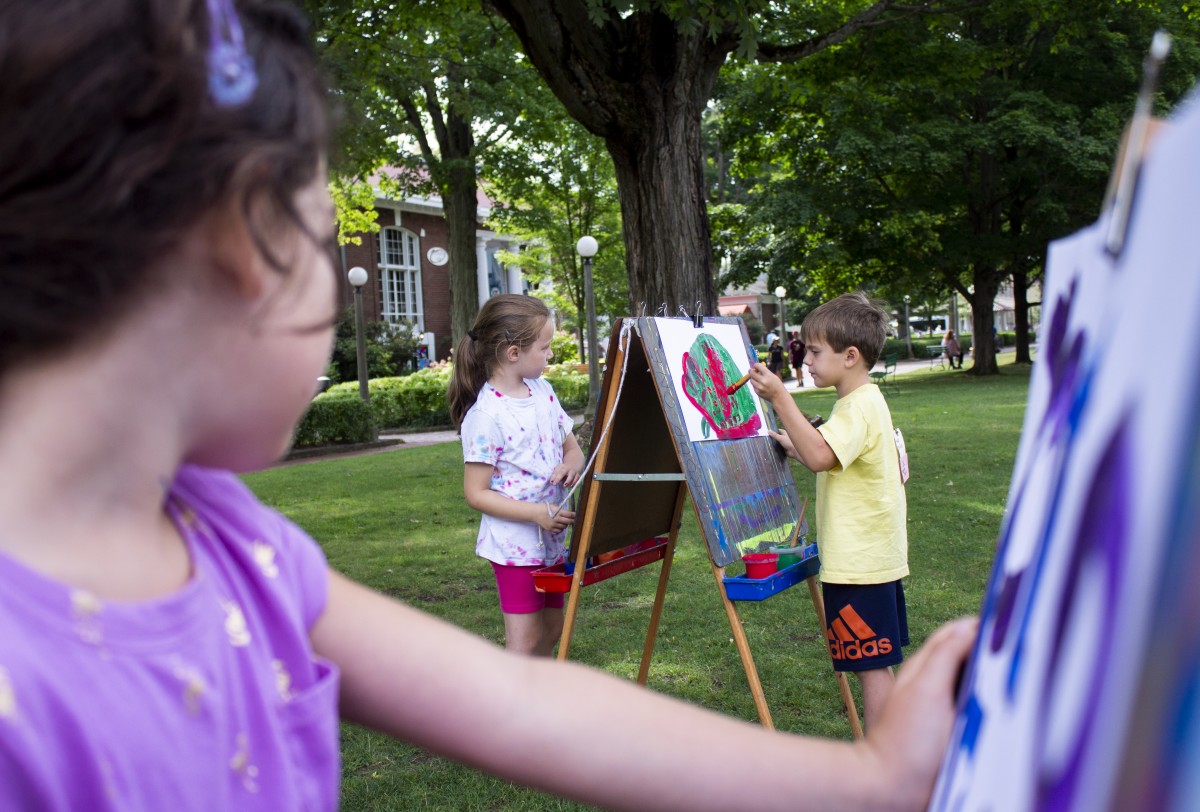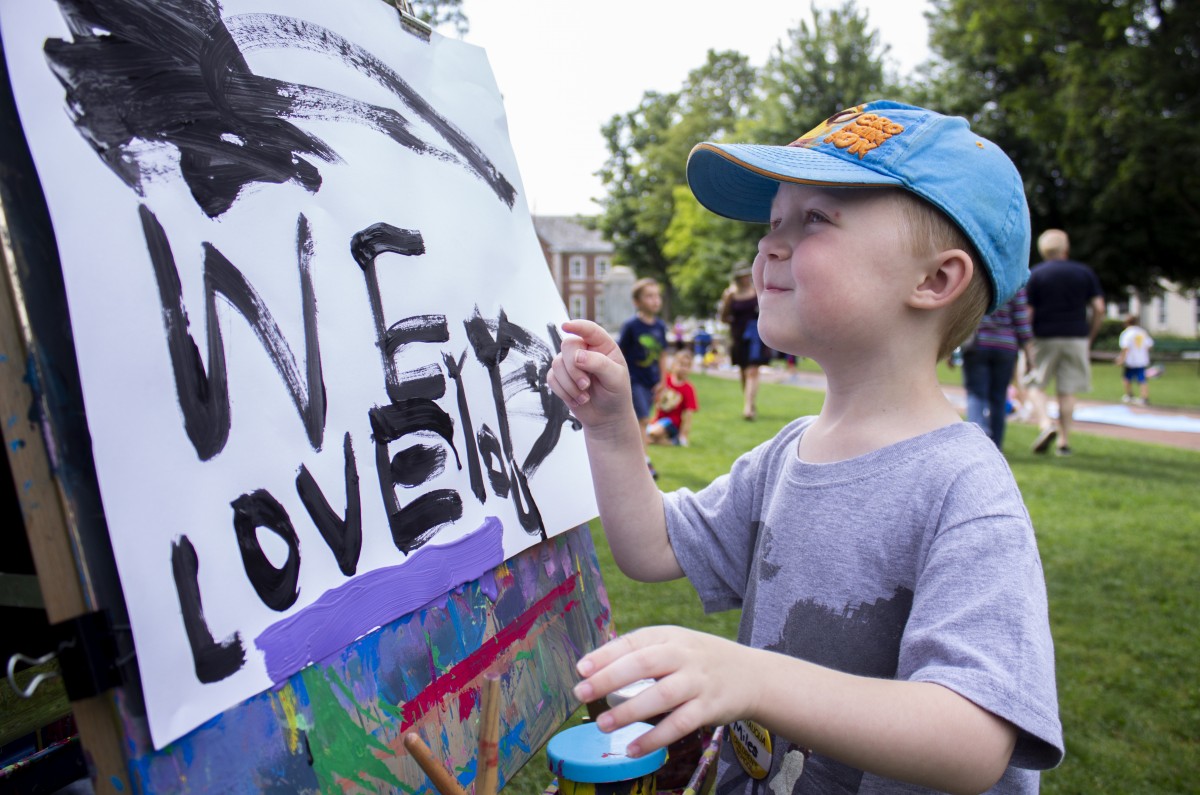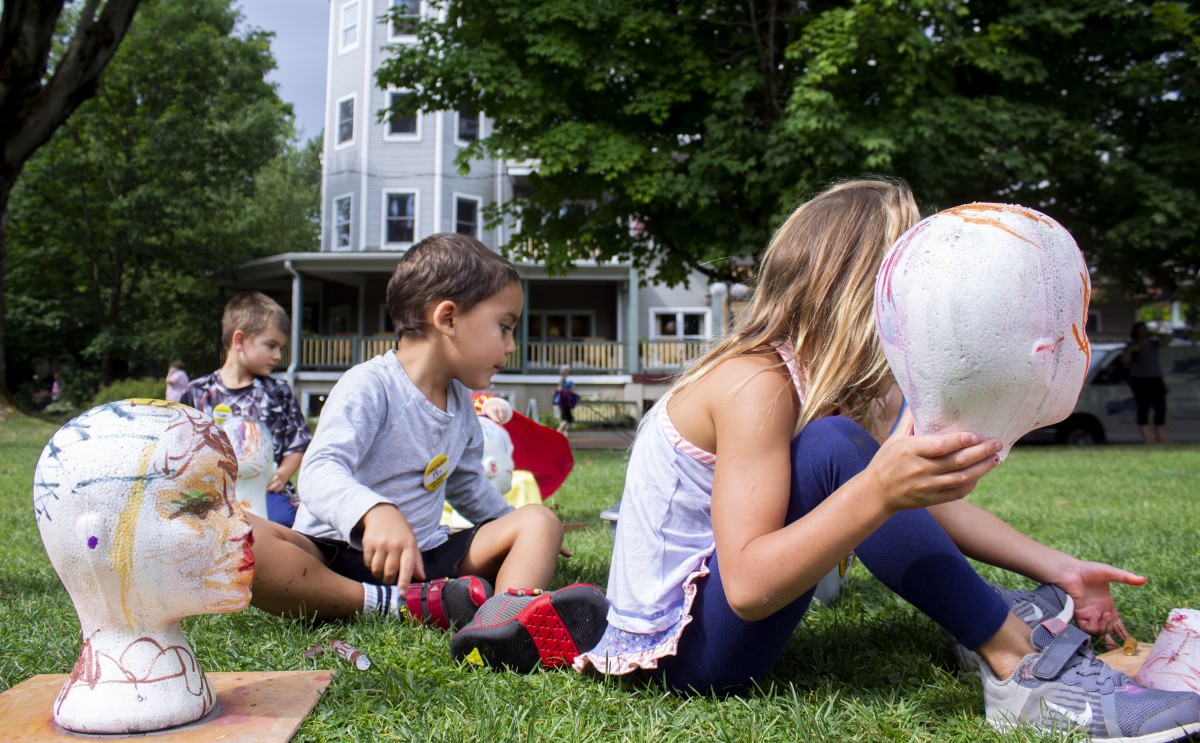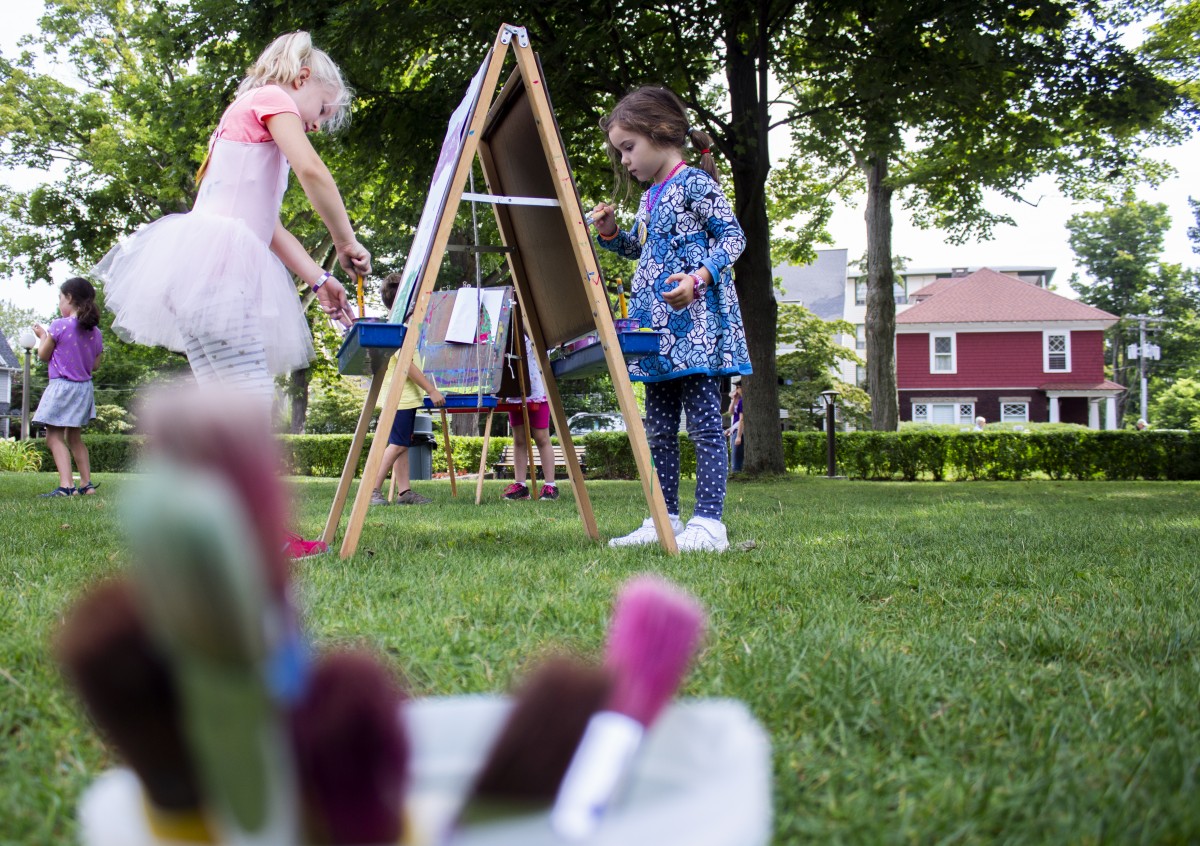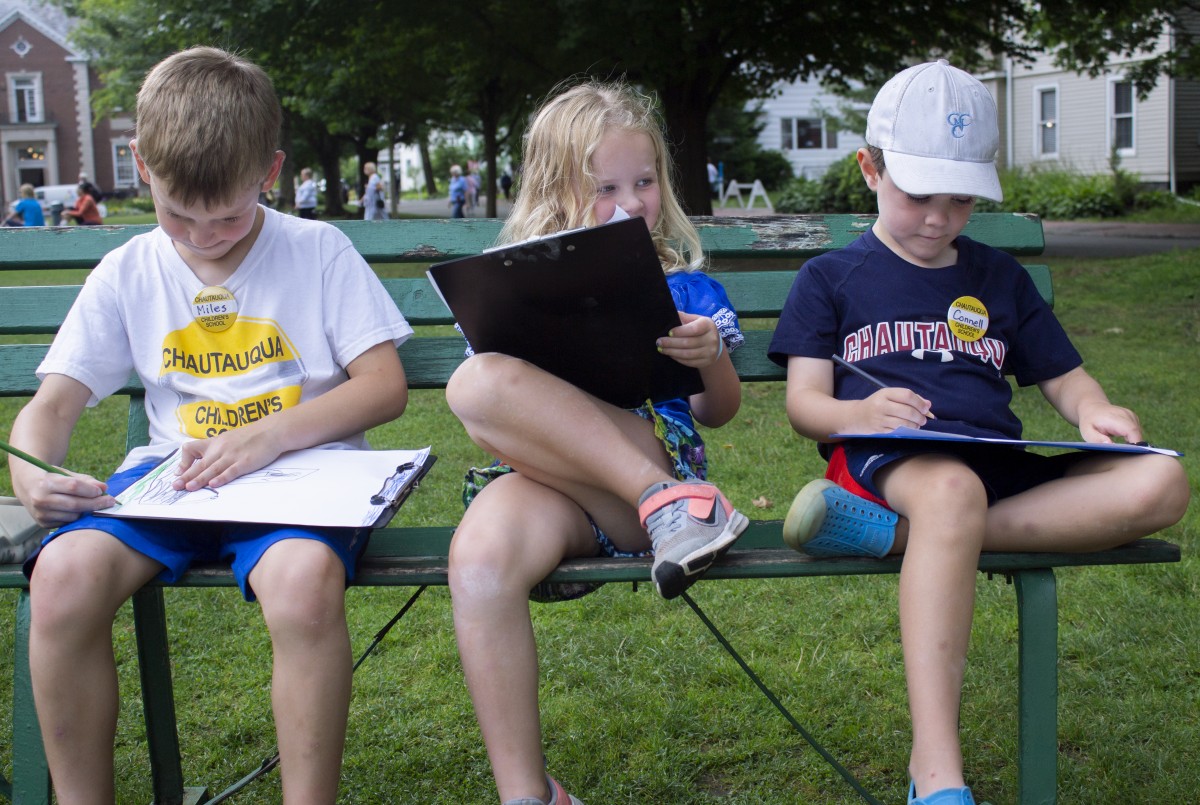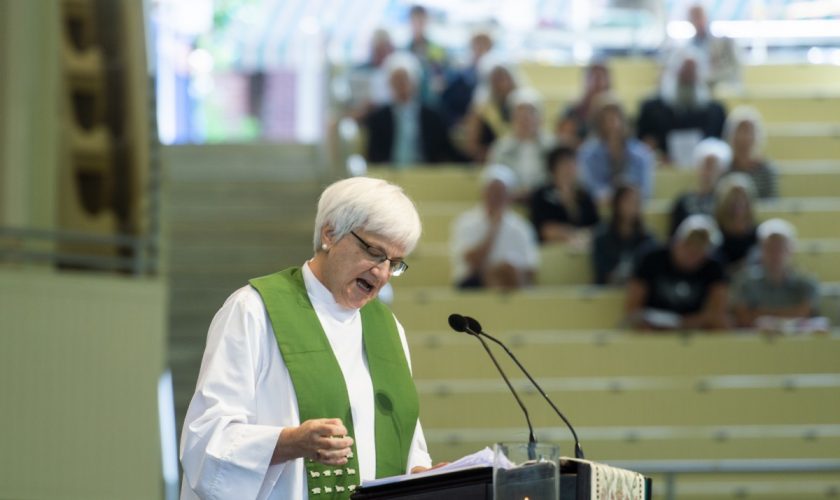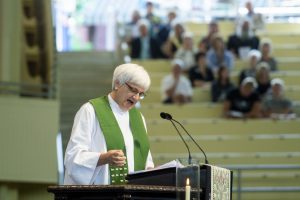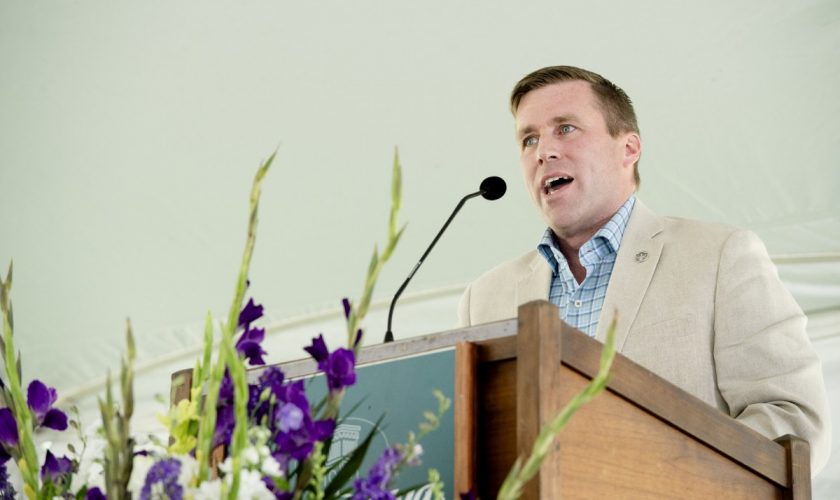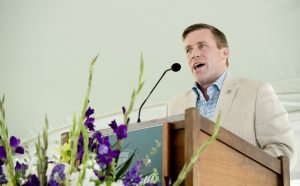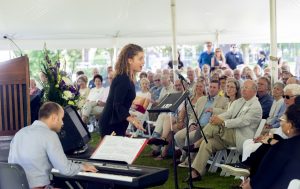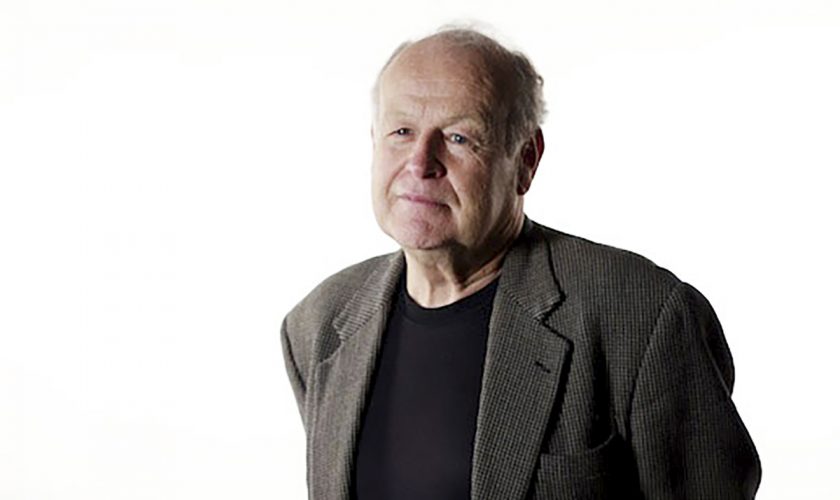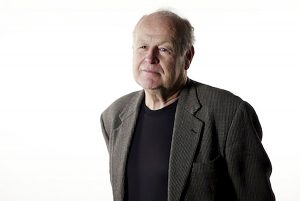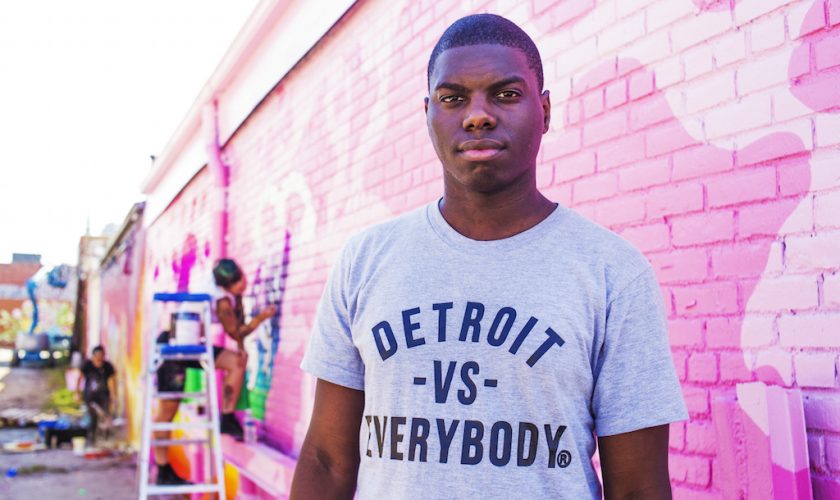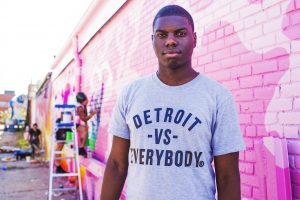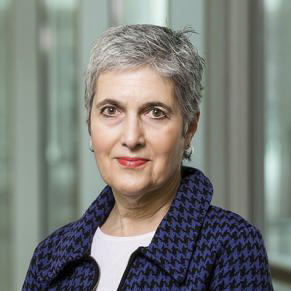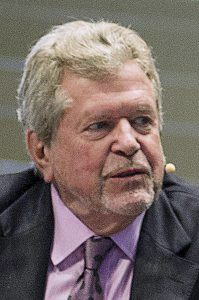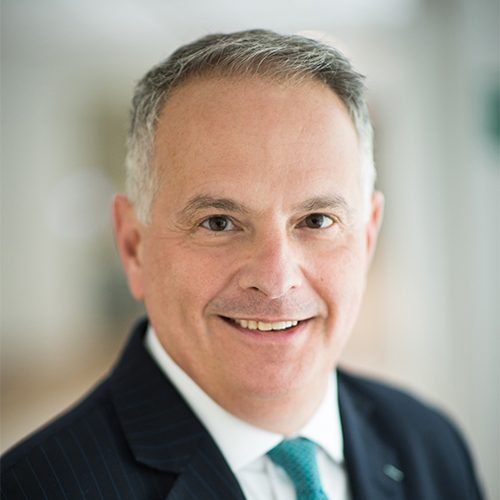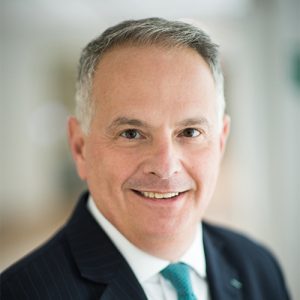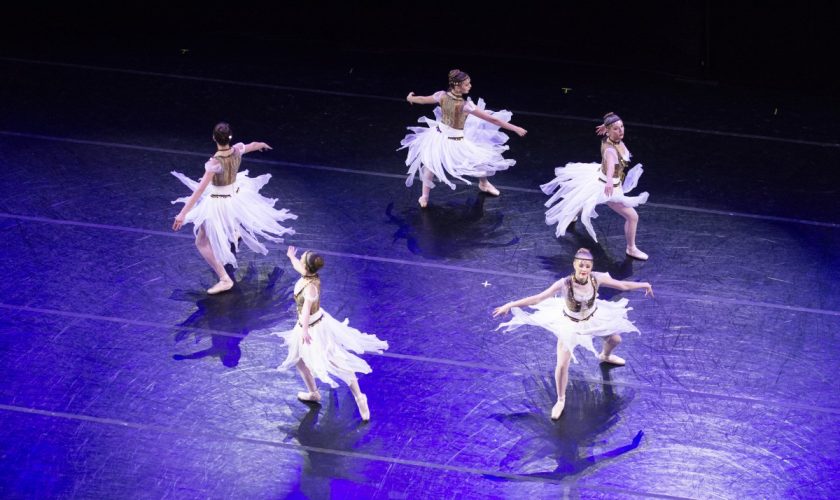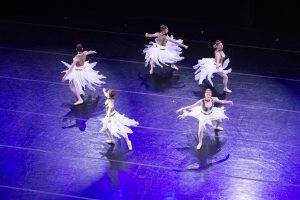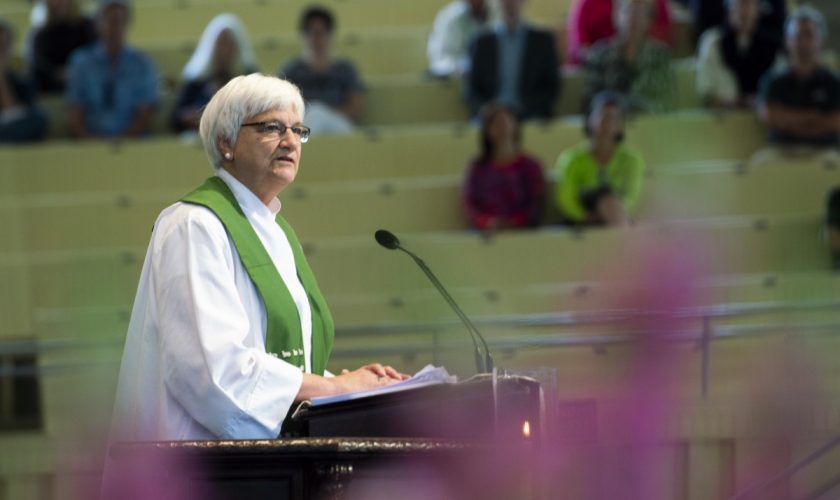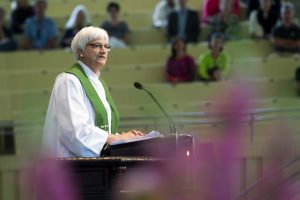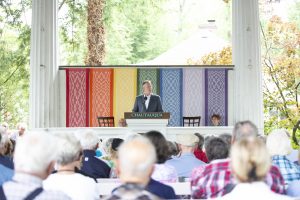
MHARI SHAW/STAFF PHOTOGRAPHER
In his first visit to Chautauqua Institution, Hardy Merriman had something to prove: Nonviolent civil resistance is a more effective sociopolitical strategy than violent insurgence.
For the sustainability of democracy, for women’s rights, immigrants, labor, minority communities — for all human rights causes — Merriman believes nonviolent resistance is an essential collective tool for any activist.
“There’s clear evidence to show that civil resistance movements have a crucial role to play in advancing peace, democracy, accountability, justice and human rights in the world,” Merriman said.
Merriman, president of the International Center on Nonviolent Conflict, delivered his lecture, “Power from the Bottom Up: Civil Resistance as a Driver For Rights, Freedom and Justice,” on Tuesday in the Hall of Philosophy, as part of the Week Eight Interfaith Lecture Series, “The Power of Soft Power.”
Using social science methods and a data set commissioned by the ICNC in 2007, Merriman explored the differences between nonviolent and violent action, the relative effectiveness of those actions and a new conception of what it means to be an “activist.”
To begin, Merriman first described civil resistance movements as having a concerned-citizen structure, one that is based on two types of acts — acts of commission and acts of omission.
“In all these movements, people voluntarily mobilize; no one paid them to mobilize, they weren’t forced,” Merriman said.
That mobilization, Merriman said, can either be predicated on acts of commission — people doing things they are not supposed to do, not expected to do, or forbidden by law from doing — or acts of omission, when people “refuse to do what they were supposed to, expected to do or required by law to do.”
These acts can include strikes, protests, boycotts — more conventionally “seen” methods — as well as divestment and withdrawals of support for particular institutions, all of which, Merriman said, challenge the status quo and the fact that “power comes from obedience.”
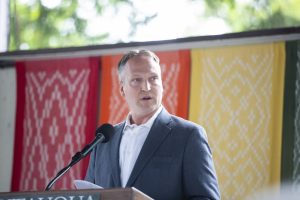
“When we do the things we’re supposed to do, this creates the status quo, and certain people and groups have learned to really benefit from that, profit enormously and then sometimes take that power and use it in ways we don’t like,” Merriman said. “When we withdraw our cooperation and obedience, we can make that status quo costly, and shift the balance of power in society.”
Perhaps inherent in all people is the desire for change — even before it bubbles over into wide and collective action, Merriman said, citing John Adams, who described this concept in 1815 with respect to the American Revolution.
“A history of military operations is not a history of the American Revolution,” Merriman quoted. “The revolution was in the minds and hearts of the people. It was substantially affected before hostilities commenced.”
Providing examples from the last few years, months and days, including nonviolent movements in South Korea, Venezuela, Nicaragua, Sudan and Hong Kong, Merriman said nonviolent civil resistance is “not culturally specific” and is a “global phenomenon.” As part of the ICNC and directed by American political scientist and professor Erica Chenoweth, a research project was developed in 2007 to help characterize this phenomenon. A data set of events spanning from 1900 to 2006 was compiled and analyzed for the effectiveness of nonviolent and violent movements; the research was used to develop Chenoweth’s award-winning book Why Civil Resistance Works, co-authored by Maria J. Stephan.
The findings offer a better understanding of maximum objectives, which “fundamentally change a government or who is governing,” and what it takes to fulfill them. On average, Merriman said, “nonviolent civil resistance movements were able to achieve their stated goals 53% of the time over the last century,” whereas violent movements achieved their goals 26% of the time. According to Freedom House, authoritarianism has been rising and democracy has been declining in the last 13 years, Merriman said.
But Adams’ perspective that “the revolution was in the minds and hearts of the people,” is not something young people are being exposed to in formal education settings, Merriman said.
“Should children learn this?” Merriman asked. His answer: “Absolutely.”
And the need for educational reform is not limited to educating people about nonviolent civil resistance; it pervades every aspect of moving toward a more nonviolent-oriented world, including in what makes an activist, an activist, and how those activists can be better assisted.
Activists are not just “people with bull horns,” Merriman said. Rather, activists are all types of citizens with diverse skill sets.
“Numbers really matter,” Merriman said. “If you want to win, you need a lot of people, which means you may have to reach out to people who are different from you. You may have to build coalitions; you may have to build unity in a society that’s been divided and ruled.”
To become more effective activists, better organizers and dissidents, Merriman said, an “enabling environment” for nonviolent resisters must be created. In an effort to create that environment, Merriman co-authored Right to Assist with Peter Ackerman. Preventing Mass Atrocities From a Responsibility to Protect (RtoP) to a Right to Assist (RtoA) Campaigns of Civil Resistance, or RtoA for short, is part of the ICNC’s special report series and was released in May. The report provides an extensive outline of needs for nonviolent civil resisters, mostly focusing on a reimagining of how activists can be trained.
We should not shrink away from these challenges, even though they’re complicated. We need to develop these ideas further. We are at our strongest in the world, and our safest in the world, when we work in solidarity with others and fight together for rights, freedom and justice.” —Hardy Merriman President, International Center on Nonviolent Conflict
“Consider this, in any other profession — a doctor, a lawyer, an engineer, a soldier — they have institutions and established processes to support their learning, development of skills and the practice of individuals in those professions,” Merriman said. “Activists have virtually none of this.”
RtoA suggests a more vocational style of education for activists, one that could be implemented in schools, professional associations, unions, clubs and religious groups.
Merriman returned to the data, pointing to the relative success of nonviolent resistance over the last century and emphasized how remarkable it is for those activists to have achieved their goals “learning on their own time, with very little support.”
“What would it mean if they had much more rigorous support of their cultivation of knowledge, skills and mentorship with other activists?” Merriman asked.
But the assistance shouldn’t end at education, he said. Nonviolent civil resistance movements could benefit from receiving support during transitions of power and in the aftermath of those transitions.
“Many people who have been living under an authoritarian state have been divided and ruled,” he said. “It takes time for people to build the bonds, to come back together and think about how to unify, not just about what they’re against, but also what they’re for; what do they want to win afterwards?”
The transition is the “first step,” Merriman said, and can require engaging international groups and nongovernmental sectors. That engagement, though, often presents situational challenges, including where and how transition assistance is given, and what parties — international or otherwise — offer that assistance.
“We should not shrink away from these challenges, even though they’re complicated,” Merriman said. “We need to develop these ideas further. We are at our strongest in the world, and our safest in the world, when we work in solidarity with others and fight together for rights, freedom and justice.”
Without that solidarity, a more authoritarian world is imminent, one that is “more prone to warfare, to violence, humanitarian crises and atrocities.”
“It’s a world in which human rights abuses and spreading corruption are more likely to happen, and it hampers the international community’s ability to respond to a whole other range of issues,” Merriman said.
The bad news: Democracies are backsliding and authoritarians are “on offense.”
“Some good news is that the data is very clear that grassroots activists and organizers waging nonviolent struggle are a cornerstone of defending and advancing accountable government,” Merriman said. “We need to take their work seriously and treat it with the same seriousness as any other vocation, build infrastructure that supports the development of skills and knowledge related to this work and provide much more coordinated support to these movements when they face repression and their human rights are being violated. These steps, among other approaches, can help us turn the tide.”


